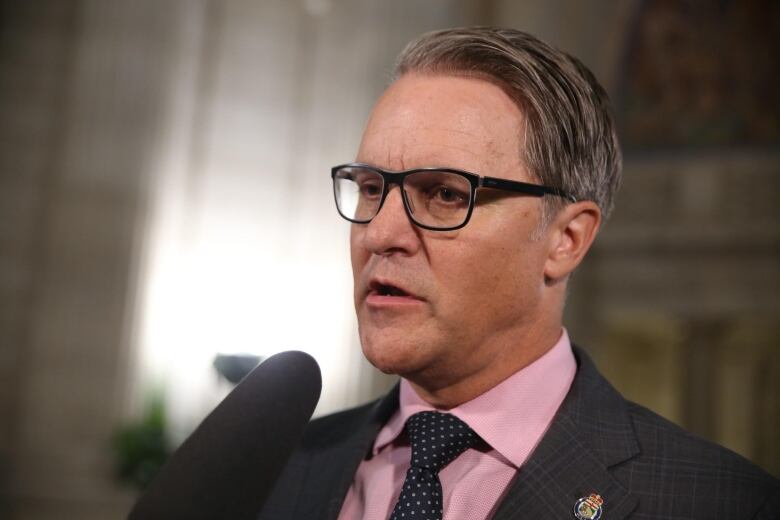Injection drug use top reason for new HIV cases in Manitoba: report
Report calls for province to make it easier to access costly drugs needed for HIV care

For the first time, injection drug use was the number one reported reason for probable exposure of HIV in Manitoba in 2018.
And a report from the Manitoba HIV program says the province remains one of the last in Canada to provide comprehensive treatment and preventative medication coverage for HIV.
The Manitoba HIV program update says 2018 marked the first year thatinjection drug use surpassed heterosexual contact as being the most likely meansof exposure to HIV.
It says 41 patients, or 35.6 per cent of clients, entering HIV carecited injection drug use as a possible transmission risk. A total of 115 people entered the program in 2018 and of that total 82 were newly diagnosed. Forty per cent of patients were female a figure nearly double the national average for Canada.
The report says that over 50 per cent of new clients self-identified as Indigenous. Men who have sex with men wasthe second most likely category to report new cases of HIV and accounted for 24.4 per cent of new cases. Heterosexual cases were recorded at 20.9 per cent.
The report is from July but was brought up in question period at the Manitoba Legislature Wednesday by Opposition NDP Leader Wab Kinew, who asked if Premier Brian Pallister would take a harm reduction approach, calling the situation a crisis.
The NDP want a safe consumption site opened in Winnipeg and say it would be a positive form of harm reduction. Premier Brian Pallister said Kinew is advocating for meth addicts to get drugs and his government won't open such a site.

After question period, NDP health critic Uzoma Asagwara called the numbers in the report alarming.
"Those numbers are concerning. It's certainly something that I think a number of health care professionals, front-line service providers and certainly the NDP have been raising alarm bells around."
Asagwaraadvocates for a safe consumption site but didn't know if such a site has ever contributed to a decrease in HIV rates among drug users.

"We do know that safer consumption sites definitely help populations that are struggling with problematic substance use and addictions" toaccess services and resources to help them.
Health Minister Cameron Friesen said the issue isn't unique to Manitoba and his government is being creative to make it easier for patients to get intervention.
"In some of these cases, because of illicit drug use, some of these individuals are tough to get to, they are a more difficult to reach subpopulation."
The report says Manitoba's criteria for accessing the provincial drug program results in delays to treatment or a lack of it altogether, costing the health care system more money.
"The bottom line is that for every HIV transmission prevented due to an undetectable viral load because of adherence to HIV medication, there is a minimum cost savings of 1.3 million dollars per case adverted," the report says.
It recommends the province consider funding treatment as prevention for people living with HIV who don't qualify for another medical benefits program.
Manitoba has resisted calls from advocates in recent years to fund PrEP a high-priced pill that studies have shown can reduce the risk of HIV transmission by 86 per cent or more.
The pill is beneficial for those at high risk of acquiring HIV, including men who have sex with men, sex workers and those with an HIV-positive partner.












_(720p).jpg)


 OFFICIAL HD MUSIC VIDEO.jpg)
.jpg)



























































































